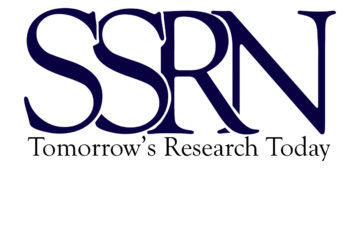On Thursday, Elsevier announced that it has entered into an agreement to acquire Interfolio. Interfolio has a series of products that fall into two related categories, one of which I call researcher career management and the other of which is the more familiar, impact assessment. While the price being paid was not revealed, Interfolio was acquired by a private equity firm in 2018 for a reported investment of $110 million (prior to adding several additional services into the Interfolio portfolio). Elsevier’s acquisition, if it succeeds, will further strengthen it as a provider of platforms and services to the university provost’s office and office of research, as well as research funders, an important consideration as it seeks to diversify its academic segment revenue basis beyond libraries. Ultimately, this acquisition would further increase the disparity in services in the increasingly direct competition between Elsevier and the new Clarivate, particularly if Elsevier can integrate it effectively.

As an ardent follower of the strategic landscape for research and analytics platforms, and the related efforts among major publishing houses to find strategic clarity in a digital and open environment, I was not surprised to see Interfolio in play. The various companies that have consistently expressed an interest in research information management — particularly Clarivate and Elsevier — have long been interested in the category of faculty activity reporting, which also includes services like Watermark’s Faculty Success (formerly Digital Measures). Research information management systems already serve as the canonical source for a fair bit of the information in these systems. So, for Elsevier, Interfolio’s faculty activity reporting, tenure and promotion, faculty search, and dossier management services should integrate very well with its already strong PURE platform.
An obverse value proposition could come into play here as well. Interfolio’s products and services contain substantial data that already contribute to assessment and impact analysis. These are held in the aforementioned faculty career management services, on a proprietary basis for individual and institutional customers, in ways that could intriguingly be integrated into various analytical tools and services. And, at least in the UK, the oddly-named ResearchFish, acquired several years ago by Interfolio, is used by funding agencies to track the work of their funded researchers (attracting a bit of controversy lately for its unexpected approach to social media). Notwithstanding data protections in place, there could easily emerge additional opt-in opportunities for data from Interfolio services to populate other Elsevier platforms and analytics over the course of time.
It would be a surprise if Elsevier were the only firm to consider a bid on Interfolio. Clarivate, in particular, would seem to benefit from many of the same sources of integration and value as Elsevier. Of note, this is the first major acquisition by either in the research information sector following Clarivate’s acquisition of ProQuest. Perhaps Clarivate is taking a respite from acquisitions as it grapples with substantial integration headaches, or perhaps Elsevier was once again willing to pay a premium in order to ensure it had access to an important market leader, or perhaps a combination of both. One thing is for sure — Elsevier is bringing together a premier researcher career management offering with its highly competitive research information management system — and that can make a compelling combination. Clarivate has an even higher mountain to climb now as it works to create a competitive research information management offering, working to combine Converis, which has not captured meaningful market share since Clarivate acquired it, and the more nascent Esploro, a category-bending service which it gained through the ProQuest acquisition.
Elsevier critics were out in force on social media to raise concerns about the acquisition. “Bad news” and “Gross” were among the milder tweets. The most disappointing part of this reaction is the surprise that many librarians and other community advocates express about an acquisition of one company by another company. This should not be a surprise, as I wrote years ago when Elsevier bought bepress. Universities for whom this is a substantial concern should not outsource strategically sensitive services to commercial firms, or alternatively should ensure their contracts are structured to protect their interests in the face of the most outrageous acquisition they can imagine.
All of which is not to say there are not reasonable concerns about the growing concentration of data about and for the research enterprise. For example, my friend Torsten Reimer, the new university librarian at the University of Chicago, asked “Is one company in charge of so much data healthy?” And as more and more research infrastructure is brought together, and potentially bundled together, universities must ask about the broader implications of lock-in around the research infrastructure. In its letter urging the FTC to block Clarivate’s acquisition of ProQuest, SPARC argued that “the merger [sic] would compromise user privacy,” so perhaps advocacy organizations will weigh in on the surveillance and privacy implications of the Interfolio acquisition.
As in any acquisition, there is much excitement, and much concern, to be had around the corporate strategy as reflected in the deal. But the key question (assuming the deal passes regulatory review) is whether the acquisition can be integrated to deliver the intended value, both to users and in the market. In this case, as in many of Elsevier’s research infrastructure, workflow, and analytics acquisitions over the past decade, there seems to be a compelling corporate strategy combined with an unmatched budget to support acquisitions. But post-acquisition integrations are always challenging, and Elsevier has been no exception to this rule. Even years later, much of the potential value from integrating Mendeley and PURE, or bepress and SSRN and Aries, has yet to be realized. It might not be unreasonable if an observer, raising an eyebrow, were to ask if this apparent track record is auspicious for Elsevier’s ability to realize the strategic benefits of its acquisition of Interfolio for itself and its customer community.
Discussion
2 Thoughts on "Elsevier to Acquire Interfolio"
Roger great post as always. Very insightful and thoughtful! Data is the new oil. Who will own the service stations and at what price?
Thanks Roger. Seems like a race that the prize for winning is not yet clearly outlined. It is concerning to see large corporations “colonizing the university” as Amy Brand expressed it here https://www.timeshighereducation.com/opinion/open-access-loses-when-publishers-are-vilified
Having read in your piece about yet to be realised value from earlier acquisitions, I am put in mind of this Roger McGough poem The Leader
I wanna be the leader
I wanna be the leader
Can I be the leader?
Can I? I can?
Promise? Promise?
Yippee I’m the leader
I’m the leader
OK what shall we do?



